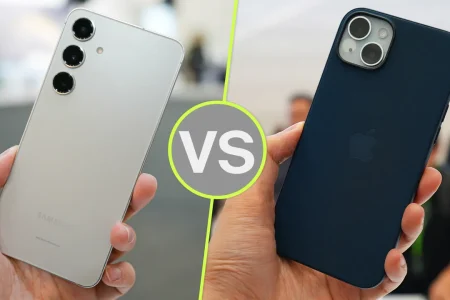Apple vs Samsung
In the competitive world of smartphones, Apple and Samsung have emerged as the two dominant players, each with a distinct approach to both marketing and business strategy. While both companies aim to capture market share and foster brand loyalty, their methods reflect their unique corporate philosophies and consumer bases. This article delves into the marketing and business strategies that have propelled Apple vs Samsung to the forefront of the global tech industry.
01.Apple’s Marketing & business strategy
Apple’s marketing strategy is centered around the idea of premium branding. The company positions its products as high-end, luxury items, emphasizing quality, innovation, and design. Apple’s advertising often focuses on the aesthetic appeal and user experience of its products, creating a perception of exclusivity and desirability.
– Emotional Appeal and Lifestyle Marketing
Apple has mastered the art of lifestyle marketing. Its campaigns often connect emotionally with consumers by highlighting how Apple products integrate seamlessly into their lives, enhancing creativity, productivity, and social connectivity. The iconic “Think Different” campaign is a prime example of how Apple aligns its brand with innovation and individualism.
– Simplicity and Consistency in Messaging
Apple’s marketing messages are simple, clear, and consistent. Whether through sleek advertising, minimalist packaging, or straightforward product names, Apple ensures that its communication is easily understood by all. This simplicity reinforces its brand identity and makes its products more accessible to a global audience.
– Strong Focus on Brand Loyalty
Apple has cultivated a loyal customer base by consistently delivering high-quality products and a seamless ecosystem. This loyalty is reinforced through strategic product launches, where existing customers are encouraged to upgrade to the latest model. Apple’s loyalty programs and customer service further solidify this bond, making it one of the most valuable brands globally.

02.Samsung’s Marketing Strategy
– Diversification and Economies of Scale
Samsung’s business strategy is based on diversification. The company operates in various industries, including electronics, semiconductors, and home appliances. This diversification reduces risk and allows Samsung to achieve economies of scale, lowering production costs and enabling competitive pricing.
– Rapid Innovation and Time-to-Market Advantage
Samsung’s business model emphasizes rapid innovation and a fast time-to-market. The company frequently releases new products, often being the first to market with new technologies. This strategy allows Samsung to stay ahead of competitors and appeal to early adopters eager for the latest advancements.
– Strategic Partnerships and Alliances
Samsung frequently enters into strategic partnerships and alliances to enhance its business operations. These collaborations range from technology licensing to joint ventures in research and development. Such partnerships help Samsung access new markets, technologies, and customer segments, bolstering its competitive edge. Apple vs Samsung
– Global Manufacturing and Supply Chain Efficiency
Samsung has a vast global manufacturing network that ensures supply chain efficiency. The company’s ability to produce components in-house, such as memory chips and displays, gives it a significant cost advantage. This efficiency allows Samsung to compete aggressively on price while maintaining profitability.

Conclusion
Apple vs Samsung have both carved out dominant positions in the global smartphone market through distinct marketing and business strategies. Apple’s focus on premium branding, simplicity, and vertical integration contrasts with Samsung’s emphasis on market segmentation, rapid innovation, and diversification. Despite their different approaches, both companies have successfully built loyal customer bases and continue to lead the industry. The ongoing rivalry between Apple vs Samsung serves as a testament to their respective strengths and the dynamic nature of the technology sector.





